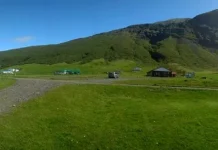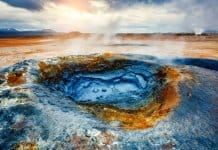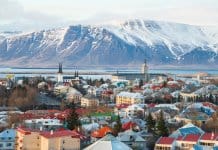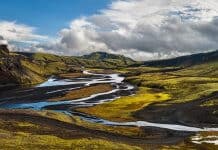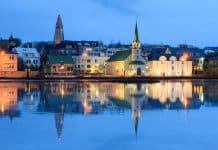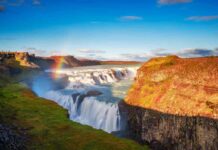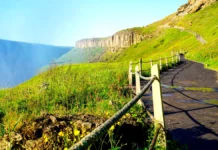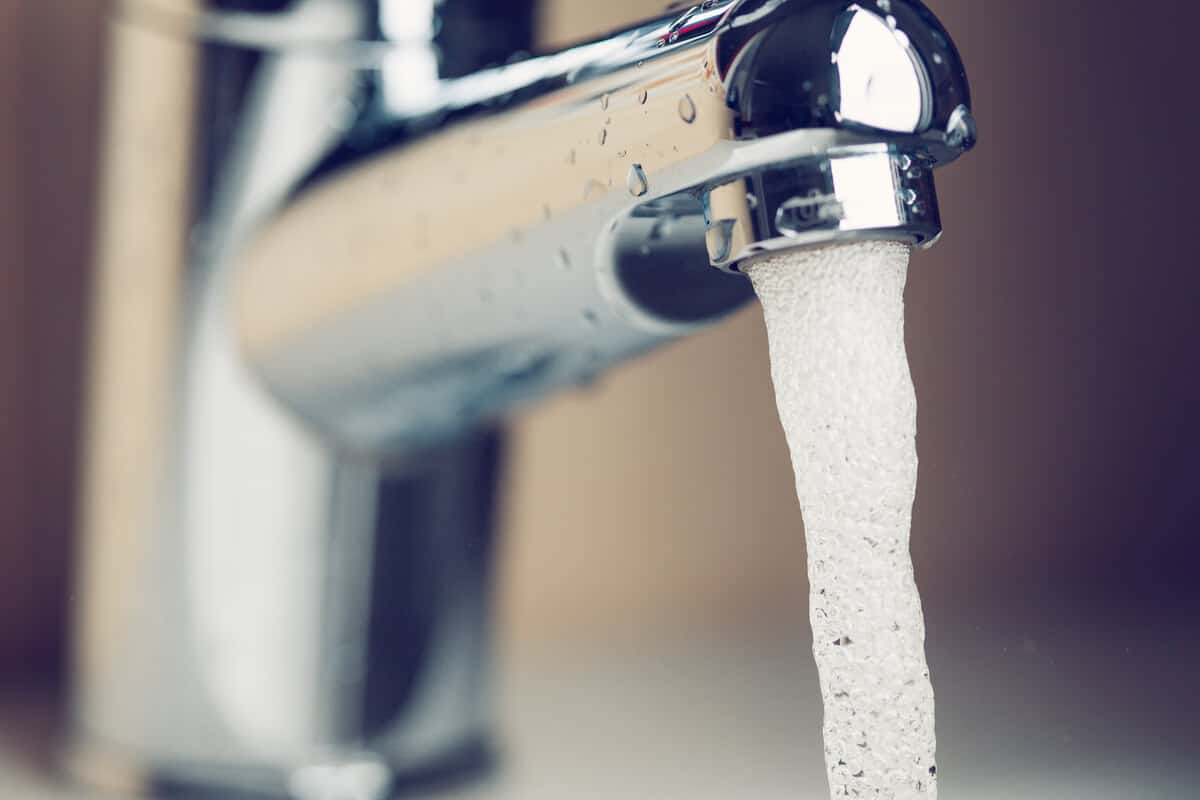Absolutely, drinking tap water in Iceland is not only safe but also a remarkable experience. An impressive 95% of Iceland’s water supply is sourced directly from pristine springs, ensuring unparalleled purity and taste.
This extraordinary water is celebrated globally for being among the cleanest and most refreshing to drink. What sets Icelandic tap water apart is its unique journey through ancient lava fields and mineral-rich rocks, a natural filtration process that imbues the water with its exceptional quality.
Free from common additives found in many other countries, such as chlorine, calcium, and nitrates, Icelandic tap water offers a pure, unadulterated hydration experience. Its crisp, naturally filtered essence makes it not just a necessity for life, but a true delight for the senses.
Iceland, a land known for its breathtaking landscapes and unique geological features, also boasts one of the world’s purest and most delicious tap waters. This article delves into the quality, safety, and characteristics of Icelandic tap water, providing valuable insights for travelers and environmental enthusiasts alike.

The Purity of Icelandic Tap Water
Natural Filtration Through Lava and Rocks
Icelandic tap water originates from natural springs, having filtered through layers of lava and rocks for decades. This natural filtration process ensures the water is free from contaminants and additives, making it not only safe but also a delightful experience to drink.
Regular Monitoring and Absence of Chemicals
In contrast to many neighboring countries, Icelandic water is free of chlorine, calcium, and nitrate. Cities like Reykjavík frequently measure water quality to maintain its high standard. The absence of chemical treatments like chlorination is a testament to its purity.
Environmental Impact and Sustainability
The Issue with Bottled Water
Iceland’s tap water is essentially the same water that is sold in bottles. However, the environmental impact of bottled water is significant. Plastic pollution from single-use bottles contributes to landfill and ocean waste. By choosing tap water over bottled water, travelers can play a part in reducing this environmental burden.
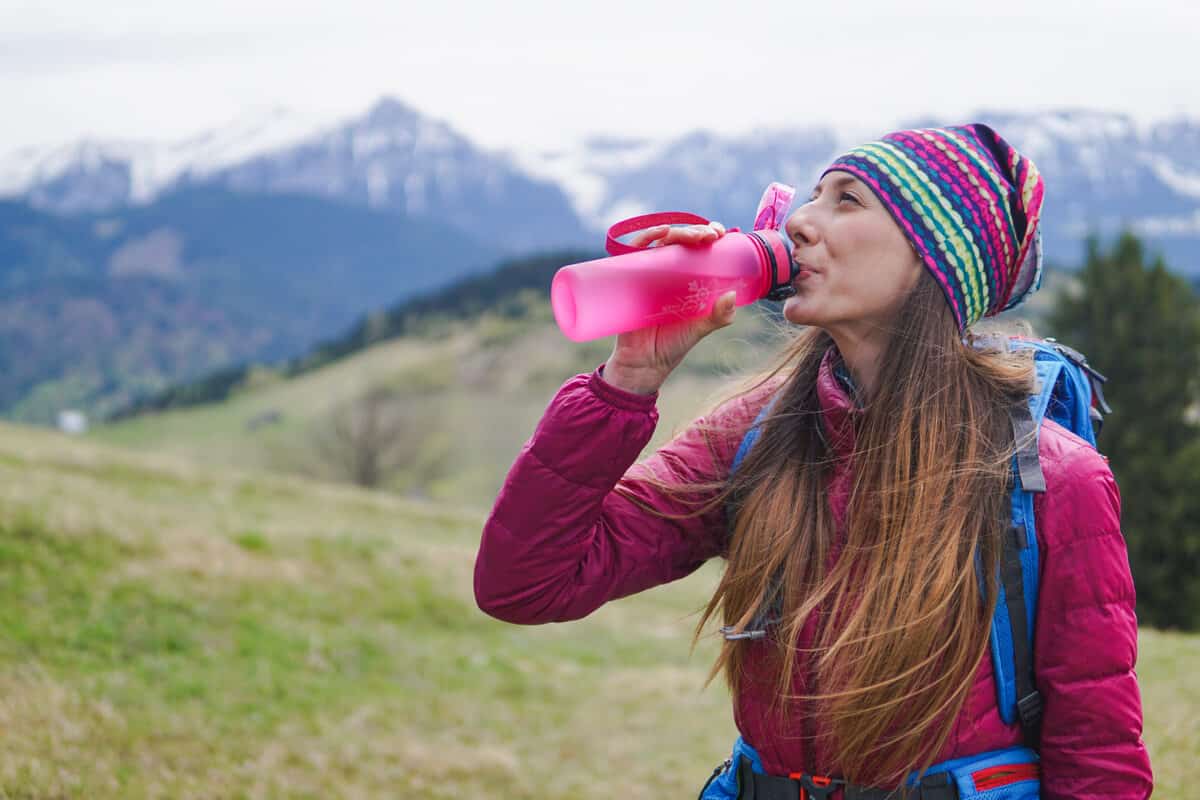
Encouraging Responsible Travel
Organizations like HI Iceland actively promote the use of tap water among tourists to minimize plastic waste. Travelers are encouraged to carry reusable water containers, refilling them with Icelandic tap water, which is a practical and eco-friendly choice.
Understanding the Sulfur Smell in Hot Water
Geothermal Origins
The unique geothermal activity in Iceland means that hot tap water may have a sulfuric smell due to its geothermal origins. This is more noticeable in the hot water and is a result of Iceland’s volcanic nature, with magma and sulfur dioxide flowing beneath the surface.
Cold Water: Pure and Odorless
The cold tap water, however, is free from any sulfur smell. It is advisable to use cold water for drinking and let it run for a few seconds to ensure it’s completely cold and free from any residual hot water in the pipes.
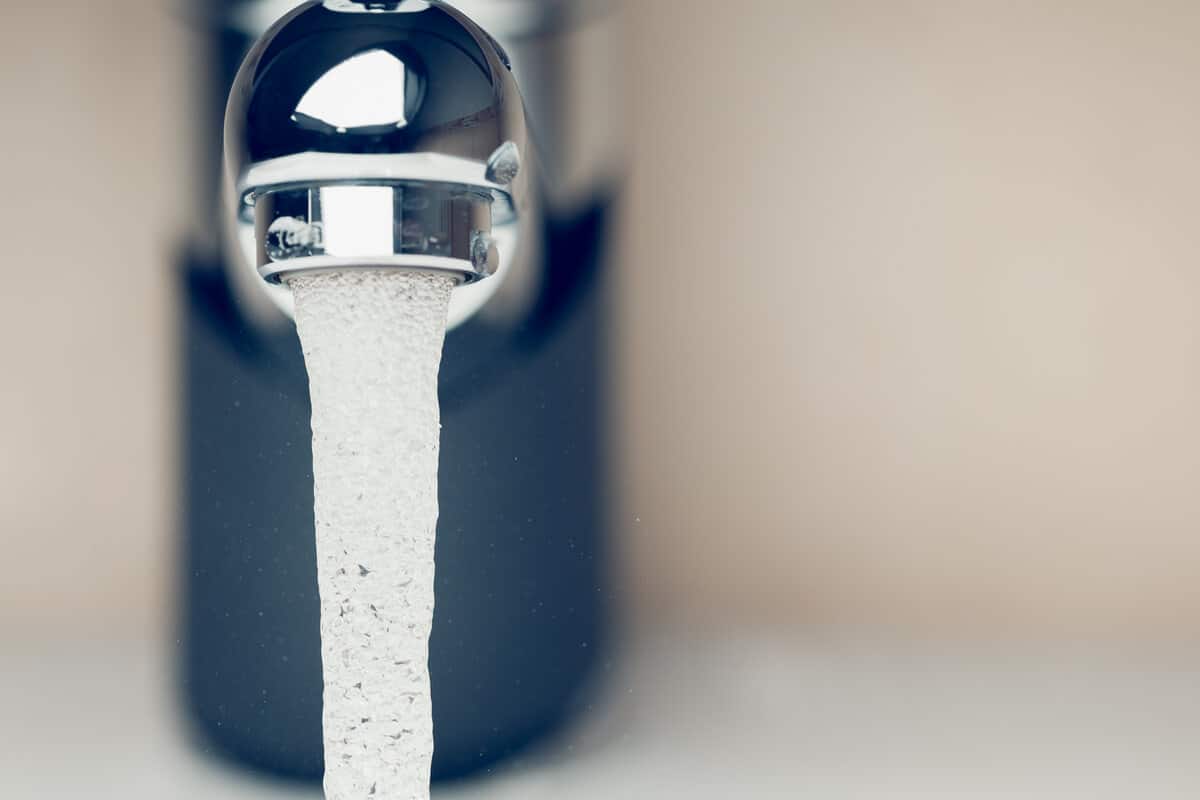
Practical Tips for Travelers
Using Tap Water in Iceland
Travelers can safely drink tap water from the kitchen, which is generally of better quality than bathroom taps. It’s also a cost-effective option, as Iceland can be an expensive destination. Carrying a refillable water bottle and refilling it with tap water is a convenient and responsible choice.
Staying Hydrated in Iceland
Given the range of outdoor activities in Iceland, staying hydrated is crucial. Travelers should ensure they have enough water for their adventures, and Icelandic tap water is the perfect solution for this.

Frequently asked questions about tap water in Iceland
Can I Drink Tap Water in Iceland Hotels?
Yes, you can safely drink tap water in Iceland hotels. The tap water in hotels, just like elsewhere in Iceland, is of high quality and undergoes regular testing to ensure its safety and purity.
Why is the Water in Iceland so Good?
The exceptional quality of Icelandic water is due to its natural filtration process. The water filters through layers of lava and rocks over many years, removing impurities and adding minerals, resulting in pure and tasty water.
Can You Ask for Tap Water in Iceland?
Absolutely, you can ask for tap water in Iceland. It’s common and acceptable to request tap water in restaurants and other establishments. It’s safe, delicious, and environmentally friendly.
How Does Iceland Have Such Clean Water?
Iceland’s clean water is a result of its unique geological and environmental conditions. The natural filtration through volcanic rocks and the absence of industrial pollutants contribute to the cleanliness and purity of the water.

